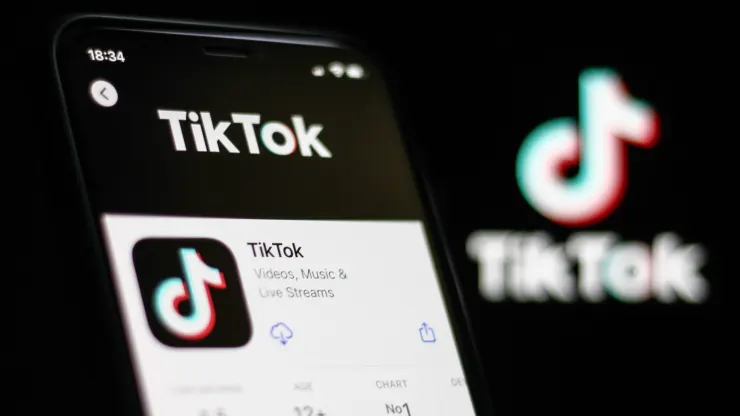Congress presents bill to ban TikTok to 'protect citizens'
A bill has been put forward by Republican Senator Mark Rubio to ban TikTok following allegations of espionage.
-

US Senator accuses TikTok of espionage for the Chinese government (Getty Images)
Following concerns from the FBI director and cybersecurity experts that China may exploit the social media platform, TikTok for allegedly spying on US citizens, Senator Marco Rubio, the top Republican on the Senate Intelligence Committee, and a bipartisan pair of congressmen in the House, proposed a bill, on Tuesday, that would prohibit TikTok in the United States.
The bill, according to the statement, would "protect Americans by blocking and prohibiting all transactions from any social media company in, or under the influence of, China, Russia, and several other foreign countries of concern."
The bill explicitly designates TikTok and its parent company, ByteDance, as social media firms for the purposes of the legislation.
The bill comes after a series of states, headed by Republican governors, enacted state-level limits on TikTok use on government-owned devices. At least seven states, including Maryland, South Dakota, and Utah, have introduced similar legislation in the last two weeks.
These actions contrast with the protracted discussions that TikTok has had with the US government for years over a potential agreement that may enable the company to handle national security issues and to continue providing services to US consumers.
In a statement, Rubio said, “The federal government has yet to take a single meaningful action to protect American users from the threat of TikTok,” adding that “there is no more time to waste on meaningless negotiations with a CCP-puppet company. It is time to ban Beijing-controlled TikTok for good.”
TikTok spokesperson Hilary McQuaide responded to the bill proposition saying, “It’s troubling that rather than encouraging the Administration to conclude its national security review of TikTok, some members of Congress have decided to push for a politically-motivated ban that will do nothing to advance the national security of the United States.”
Moreover, McQuaide said, “We will continue to brief members of Congress on the plans that have been developed under the oversight of our country’s top national security agencies—plans that we are well underway in implementing—to further secure our platform in the United States.”
US FCC prohibits Chinese telecom and surveillance equipment
The US Federal Communications Commission (FCC) banned, in November, equipment authorizations for video surveillance equipment or telecoms manufactured by Chinese companies Huawei and ZTE, calling them "a threat to national security."
The official Report and Order from the FCC read: "The actions we take today in adopting new rules and procedures comply with Congress’s directive in the Secure Equipment Act of 2021 to prohibit authorization of 'covered' equipment on the Covered List within one year of that Act’s enactment and lay the foundation to prohibit the authorization of any additional “covered” equipment that may be added to the Covered List based on a determination that such equipment poses an unacceptable risk to national security."
Consequently, the Report and Order noted its ban of all "telecommunications and video surveillance equipment produced by Huawei and ZTE (and that of their subsidiaries and affiliates)."
Additionally, Hytera, Hikvision, and Dahua also face a prohibited authorization until the FCC "approves these entities’ plans and measures that will ensure that such equipment will not be marketed and sold to for “the purpose of public safety, security of government facilities, physical surveillance of critical infrastructure, or other national security purposes.”
According to the order, the restriction builds on efforts by the Commission, Congress, and the Biden administration to take unprecedented action as they continue to pressure China and challenge the One China policy.
In a statement Hikvision stated that its video products “present no security threat” to the US however, the FCC’s decision “will do a great deal to make it more harmful and more expensive for US small businesses, local authorities, school districts, and individual consumers to protect themselves, their homes, businesses, and property.”
Read more: US senators call TikTok 'massive surveillance' tool for China

 4 Min Read
4 Min Read








